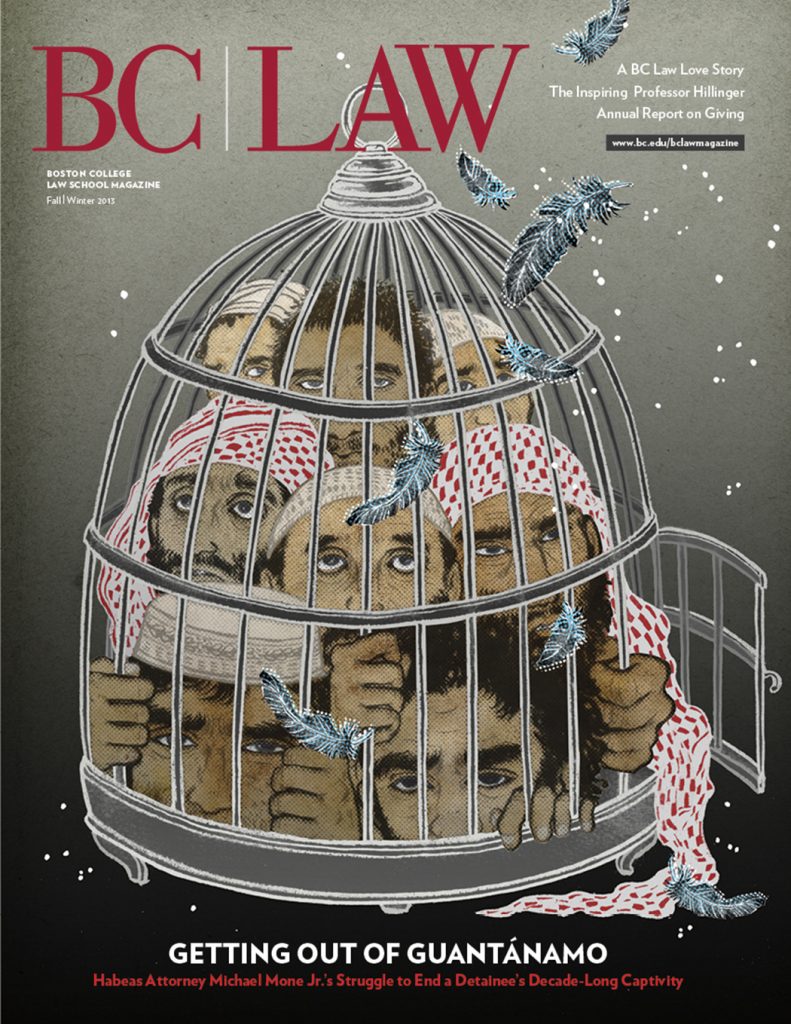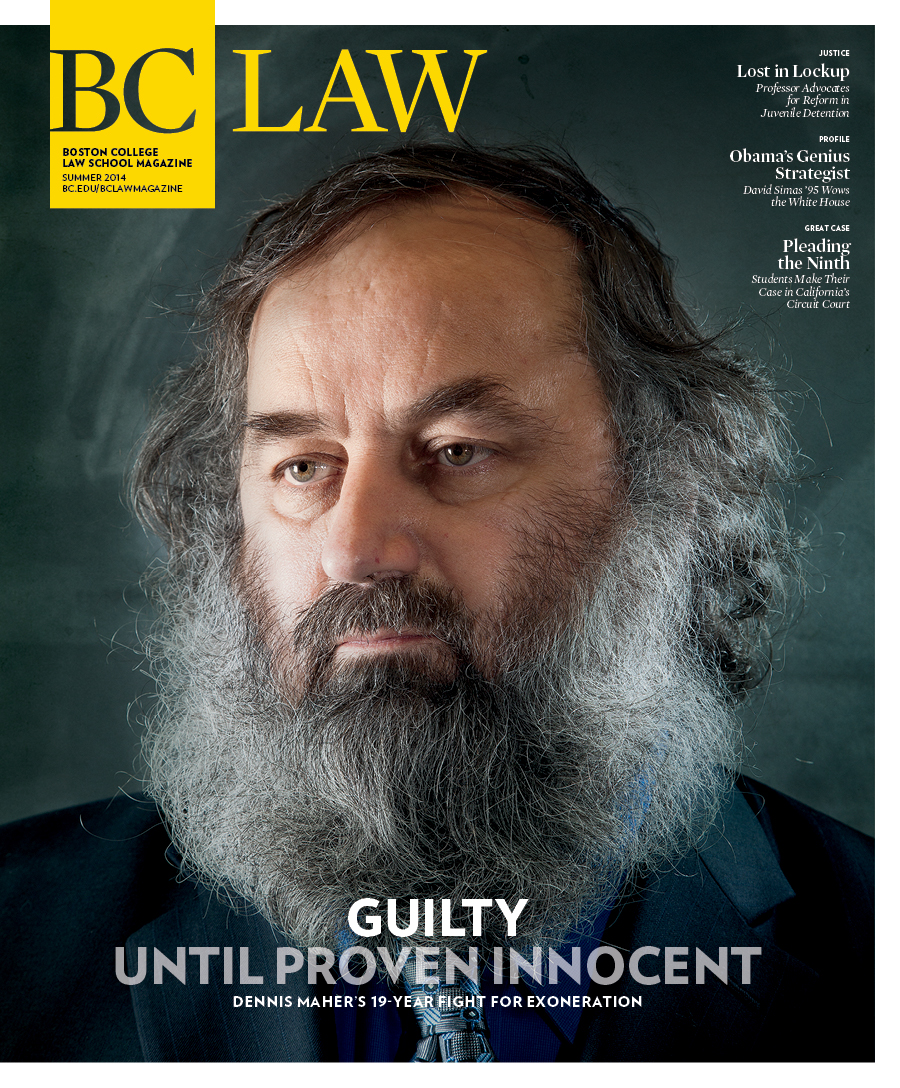Endless Detention
While reading Jeri Zeder’s profile of Michael Mone Jr.’s work representing Mr. Ali Hussein Al Shabban and Mr. Oybek Jabbarov [“The Shame of Guantánamo,” Fall/Winter 2013], I was reminded of a question I heard more than a year ago. Last April, after prisoners at Guantánamo Bay went on hunger strikes in protest of their indefinite detention, President Obama renewed his pledge to close the prison, asking, “All of us should reflect on why exactly are we doing this? Why are we doing this?”
I am grateful for Mr. Mone’s work in securing Mr. Jabbarov’s release to Ireland, but I can’t help but wonder how many more days or years we have to ask ourselves that question before Congress finally agrees to shut down what Amnesty International has called a “travesty of justice.”
Steven Chen ’13
Jamaica Plain, MA
A Clinical Milestone
I read with interest of the reconfiguration of the Law School’s clinical programs, creating an on-campus “law firm” [Fall/Winter 2013]. I was among the first students to work at the BC Legal Assistance Bureau in Waltham. At the time, the program was an extracurricular activity. In very few years, clinical programs became integrated into the school’s for-credit work. Clinical faculty became tenure-tracked. Clinical programs proliferated.
The integration of the diverse programs is a very exciting next step in the evolution of clinical education. It provides new opportunities for both the education of the students and service to a broad range of clients. Further, the presence of clients on the campus will serve as a reminder to the entire Law School community that the practice of law is fundamentally about providing service to clients and access to justice.
Meg Connolly ’70
Boston
Colleagues in Arms
Before I put my uniform back on and went off to combat training last fall, I became aware of the BC Law Magazine article on Tim McLaughlin [“His Horse Was Named Death…” Spring/Summer 2013]. I was impressed with the sacrifices that he had to make. Tim and I are both graduates of BC Law, Tim in 2009, I in 2004. Tim went to Iraq before attending law school. I went afterward, in large part because I was inspired while at BC Law School to serve.
I am not alone. Since 9/11 our law school has sent a significant number of graduates into the military. In fact, when I checked in for training at the Naval Justice School (where they teach military law for the Navy JAG corps), my class had more BCLS graduates than any other law school in the country.
As I write this, I’m in Afghanistan serving as an officer in the Navy in support of Operation Enduring Freedom. The point I want to make is that BC Law School has contributed greatly to our military in the recent past. Many of us were actually motivated to serve because we attended BCLS. I hope that fact was—or will be—shared as well.
Lieutenant-Commander Elliot Oxman ’04
Afghanistan
We’d like to hear from you. Send your letters to BC Law Magazine, 885 Centre St., Newton, MA 02459-1163, or email to bclaw.magazine@bc.edu. Please include your address and a daytime phone number.



